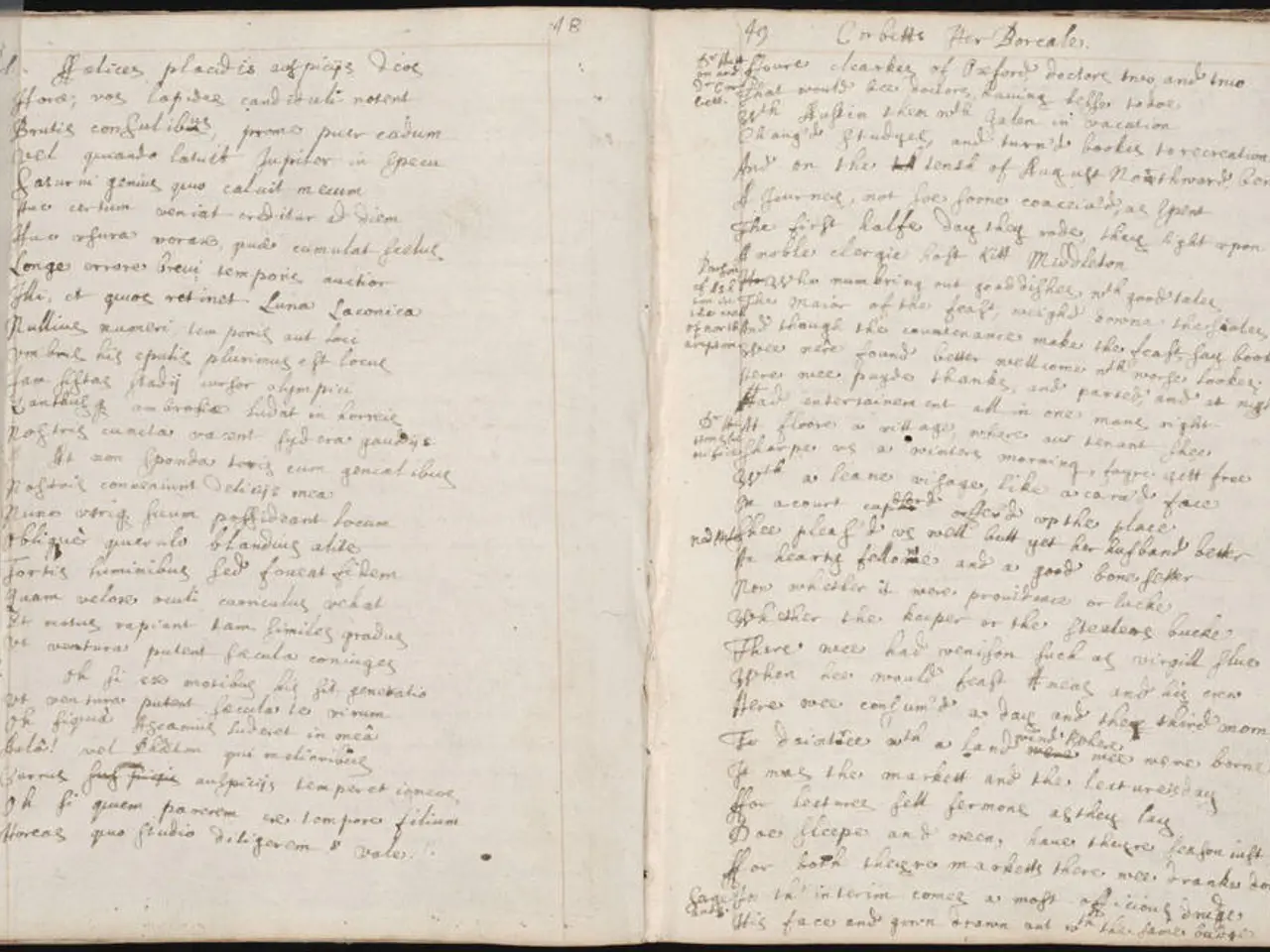Guide for Transforming Your Novel into a Cinematic Masterpiece
Transforming a captivating novel into a successful film is a process fraught with challenges and opportunities. Here's a breakdown of the key steps and factors that play a significant role in this metamorphosis.
The Attractive Novel
A novel that captivates readers with its compelling story, engaging characters, and vivid settings is more likely to catch the eye of filmmakers. For instance, Stephen King's horror novels, with their visually striking narratives and tense plots, have frequently been adapted for the silver screen.
Popularity and Cultural Impact
Bestsellers and novels with a devoted readership create a buzz and guarantee a built-in audience for the film version. Series like Twilight have become major movie events thanks to the enthusiasm of their fanbase.
Engaging in the Adaptation Process
Authors can increase their chances of a successful adaptation by actively engaging with the process. While some authors, like Stephen King, prefer to maintain a hands-off approach, others choose to participate or even produce adaptations to ensure fidelity to their original vision.
Market Trends
Film adaptations often follow what is popular in the industry. Novels that tap into trending genres, such as horror, superheroes, or fantasy, are more likely to be picked up, especially if their themes can be expanded for TV or film.
Obtaining the Option
The first step in the filmmaking process is securing an "option," a legal agreement that gives the filmmaker the right to adapt the novel into a film. This is not a guarantee that the book will make it to the screen, as most options lapse before the film is created.
The Budget Factor
The single biggest factor in whether a book gets made into a film is money. Film budgets can be substantial, with the number of characters in a novel impacting the budget, as actors are expensive. Traditional funding for films involves filmmakers approaching organizations with experience in backing films, such as rich individuals, groups of investors, or companies set up with the sole purpose of funding films.
The Role of the Author
Once the filming begins, the author's role in the filmmaking process lessens greatly. However, the author's input can be crucial in the early stages, and the best an author can hope for is an agreement for input regarding potential changes.
New Funding Options
A new generation of filmmakers is allowing for a golden age of films, with more experience in raising funds and viewers willing to back projects. Crowdfunding is a newer option for funding films that allows filmmakers to maintain more creative control and avoid the negative influence of backers who are simply looking for a profit.
The Author's Share
If a filmmaker is able to fulfill the criteria for the option, they will present the author with a contract, which is a legal document that decides how much cash the author will get when the film is made. The contract typically includes a percentage of the initial budget set aside for the author and a percentage of the profit due to the author.
The Importance of Merchandising Rights
It is essential that the author thinks carefully about where the merchandising rights will end up going, as a cut of merchandising profits may earn the author money years after the film has been made.
The Lapsed Option
If the film is not made within the agreed period of time (usually due to lack of funds), the option lapses, and the rights revert back to the author, who keeps any option money.
The Complex Journey
The process of turning a novel into a film is a complex journey that can be filled with dangers, disappointments, and frustrations. However, with careful planning, active engagement, and a little bit of luck, a novel can make the successful transition from the page to the screen.
Addressing the first draft of a potential book-to-film adaptation, an author might find a significant role in ensuring the project's success by engaging actively in the adaptation process. For instance, books like popular horror novels, such as those by Stephen King, could first be released as books with merchandising rights, providing an opportunity for fans to engage with the story in various entertainment formats.








